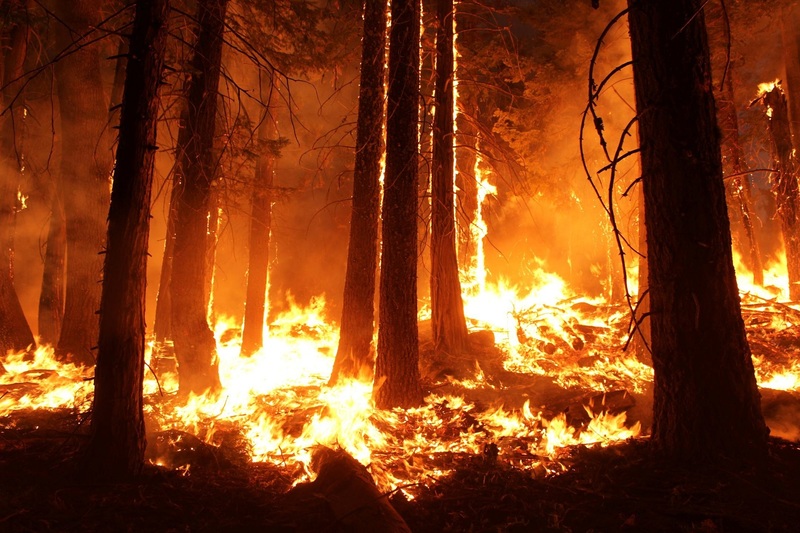The problem with disruptive technology is that it’s actually disruptive.
A true disruptive technology changes things. It comes into a system and disrupts how things are done. Traditional ways of doing things are upended. New ideas come into play. Jobs are changed. Obstacles that once seemed insurmountable suddenly seem less daunting, fixable even. Everything changes.
And that’s where the problem comes in.
Cleantech companies are often disruptive. They change how things are done, and that can make it an uphill battle to break into new markets.
Trident Pumps, a water pump company in Athabasca, Alberta is just such a company. After years of seeing firsthand how forest fires devastate communities and land resources, they decided to do something about it through a new type of water pump that uses standing water to put out fires.
Not only do Trident Pumps supply water over 4 times further than current fire trucks are rated to push (with water thieves and sprinklers every 200′), they also change how things are done - the pumping system can be deployed in a few hours with a small crew, and it saves time, money and firefighting resources.
So, What’s the Problem?
The problem is that Trident Pumps disrupt how things are done in the fire protection industry. Their approach is different, faster, less labour intensive. Less reactive, more proactive.
Trident On the Fireline
Watch the video below to see how Trident Pumps improved the water supply to a forest fire operation from a single nozzle delivering between 1000 to 1500 gallons per minute to multiple nozzles delivering 1800 gallons/minute - saving precious time and delivering solutions to a perilous fire situation.
And anything that changes traditional ways faces an uphill battle in terms of bringing the technology to market. It becomes a classic problem/opportunity paradigm - the opportunity is to change how things are done, the problem is getting the people to understand the change and embrace it.
The Trident Pump system can get to places firetrucks can’t go. They can pump water at a rate and capacity much higher than standard fire hydrant systems (especially in remote areas). They move water faster in more environmentally friendly ways.
As Rick Baksza, COO of Trident Pumps says: “we don’t fit inside the box of traditional forest fire fighting and wildlands fire protection. We are doing things nobody else can do. And that sometimes puts us in a ‘specialty services’ box, when really, our pumps can be deployed on a much broader scale. It just requires re-thinking of old methods and ideas.”

Trident Pumps & Forest Fires: Huge Problem, Meet Disruptive Solution
Western Canada has been impacted tremendously by forest fires over the last few years.
In 2017, the largest B.C. wildfire season on record emitted an estimated 190 million tonnes of greenhouse gases into the atmosphere — a total that nearly tripled B.C.'s annual carbon footprint. The cost of fighting wildfire during that unprecedented season was over $649 million.
Alberta has suffered staggering losses as well - the economic cost of the Fort McMurray fire in 2016 is estimated at over $10B. Over 80,000 people were displaced.
Trident pumps represent a disruptive solution for this wide scale, difficult problem - their innovative pumping systems can put fires out and/or prevent further spread or destruction to wildlands or property. They can deploy rapidly to remote areas:
“Over the past summer, Civeo had experienced forest fires that threatened one of its camps in Northern Alberta. Trident Pump Inc. worked with Civeo to mobilize its equipment and technology with almost no notice to site. Trident Pump Inc. was able to efficiently mobilize and utilize its technology to pump water from the closest water source over 2 KM away to prevent the fires from harming the lodge."
And they have a proven technology that works:
“On May 4th , 2016, the Forestry Division put a number of high volume pumps into service as provincial assets. One of these pumps was a Younkers Welding Ltd. (YWL) patented water pump complete with hose deployment system and manpower. Once deployed on the Ft. McMurray fire, the YWL pump was used to flood and extinguish large areas of deep ground fires in the deep organic soils in the fire area and also to fill water tenders as need Operations staff responsible for working the deep ground fires were impressed with the speed in which YWL could set up, take down and move the pump to different areas of the fire. YWL's system was able to deliver water in impressive volumes everywhere they were requested to.”
- Wes Nimco Manager; Alberta Forestry, Lac LaBiche
Telling the Story & Mobilizing Change
One of Foresight’s taglines is to “mobilize change”. It represents our goal to energize the cleantech industry and to support companies like Trident Pumps. That means telling their story, doing our part to encourage the emergency management / fire protection industry to take a close look at this company, at what they can do, at their proven technology.
Forest fires in Western Canada are a devastating problem. It’s time for a disruptive solution.



